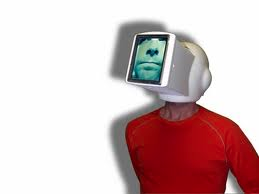
Ah, the task of interviewing job candidates. Millions (billions?) of dollars are spent by companies to recruit, effectively screen, develop, and retain talent — otherwise known as people. Bodies of literature, predictive tools, and educational tracks are dedicated to the cause of effective talent selection and development.
Well, hmm. A person is a system — with an interface.
And hey — we specialize in evaluating and designing optimal interfaces! Today's interview should be a cinch, then.
 Step 1:
Step 1: Identify target user profiles (e.g., client, colleague, sales prospect) who will interact with the system interface (a.k.a. the ideal employee we want to hire). Understand their motivations, challenges, domain knowledge, etc.
Step 2: Identify primary (most frequent and critical) use cases for interacting with interface.
Step 3: Create scenarios simulating target use cases and establish pass/fail criteria.
Step 4: Conduct session with interface (candidate) and identify issues. Score pass/fail and rate severity of issues.
Step 5: Don't forget to collect equally important "satisfaction" data.
Step 6: Analyze and consider both performance and satisfaction data to gauge total user "Experience" and make recommendation to hire or not hire. You can also recommend system design changes, though unless you hire this system, you cannot implement changes, and it's unlikely you will be retesting....
So yeah, sure, the above is over-simplified and only mildly clever, but there's a lot of truth in there. Evaluating people against a particular set of functions that they will be required to support isn't so different from evaluating a less-human machine. The interface must be equipped and designed to provide for the most optimal Experience possible. So turning 'round the (one way) mirror for a moment to examine the Experience we each provide to our "users"....
How's *your* interface? How easy are you to interact with? How intuitive is it for others to engage with you? Are you "friendly" and engaging? Compelling, even? (Let's leave "sexy" alone for now.)
Perhaps you are! But what about upon "first exposure"? Is the experience interacting with you just as easy for people meeting you for the first time as it is for people who know you well? Or is there a learning curve to overcome? Do you have the dreaded "discoverability" issues? How would your users rate the overall experience of interacting with you?

Do others ever become frustrated trying to achieve a goal by interacting with you? Are you available when your "users" need you? Do you offer clear feedback? Are you responsive to input? Are your responsiveness and your actions predictable?
Is your system state always clear to others? Are you easy to navigate with clear calls to action? How about trustworthy — offering security for private information? Are you modal or modeless (business vs. personal, for instance)? Does your system adapt to different user types?
And when someone makes an "error" interacting with you (offends, misjudges, embarrasses, or annoys you), do you provide warnings and a clear path to recovery? Or perhaps you slow down, become unresponsive, crash, shut down, throw a 404, perhaps deny their password (my personal fave).
Ultimately, we want our clients and colleagues to have a productive, low-stress, enjoyable Experience each time we interact. Our reputation and bottom line demand it. And as with a product or website, even if a candidate's core features (skills) are solid, it's one's UI that makes or breaks the Experience.